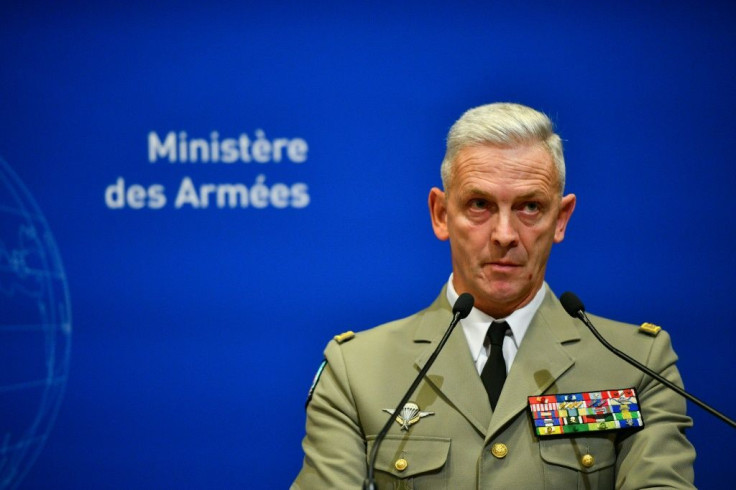Next Year Vital For Sahel's Future: French Army General

The future of the Sahel rests on what happens in the coming year, according to the military chief of staff of France, which has a fighting force in the jihadist-plagued region.
"It is now, in the coming year, that the Sahel's future will be determined," Francois Lecointre told France Info radio.
Only a political solution involving all the states of the region as well as the international community will guarantee security in the long run, he added.
France has a 4,500-strong anti-jihadist force dubbed Barkhane supporting Sahel countries -- Mali, Niger, Chad, Burkina Faso and Mauritania -- fighting a seven-year-old jihadist revolt.
Thousands of civilians have been killed, and hundreds of thousands have fled their homes.
Lecointre, who recently visited the region, vowed that "we are going to take it to the next level", without elaborating. "If we miss this window, I am quite pessimistic."
His remarks came three weeks after 13 French soldiers died when two helicopters crashed, followed by an attack on a base in Niger last week that killed 71 local soldiers. Other bloody attacks have also recently rocked Mali and Burkina Faso.
France will host a summit in the southern town of Pau on January 13 with the presidents of Niger, Burkina Faso, Mali, Chad and Mauritania.
President Emmanuel Macron has underlined that all options are on the table, including a withdrawal of French troops.
Lecointre rejected any suggestion that Barkhane has been a failure.
"What a soldier is asked to do, is to keep the level of violence as low as possible so that political solutions can be implemented before a permanent civil war breaks out," he said.
"We prevent the worst from happening, and for that we should get credit."
He added that "what puts in doubt the sense of the mission is not the losses, it is the lack of clarity... of political determination," insisting the French army was in the Sahel "to ensure our security for the next 30 years."
But Barkhane's work will mean nothing unless it is backed up by political action, he insisted.
"If we allow chaos to take root, the Sahel states will collapse on themselves, leaving a void for the Islamic State (group)," the general said.
This in turn "will create migratory pressure on Europe, with all the populist risks that this will entail."
© Copyright AFP 2024. All rights reserved.





















